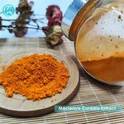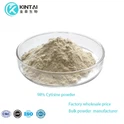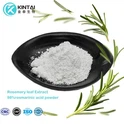Icariin is a bioactive compound extracted from several species of Chinese medicinal herbs, most notably Horny Goat Weed (Epimedium spp.). As a natural phytochemical from the flavonoid family, icariin has become a popular herbal supplement due to growing scientific interest in its wide-ranging therapeutic properties and health effects. Researchers have identified beneficial bioactivities of icariin encompassing sexual function, bone growth, cardiovascular health, immune regulation, and anti-inflammatory actions among others. But what specifically does this intriguing molecule do within the human body? How is it able to exert such multi-modal physiological benefits? This article will explore icariin's origins in ancient plant remedies, proposed mechanisms of action, key research findings, safety profile, and potential for personalized natural medicine.
History and Traditional Use
Icariin's abundant natural sources, Epimedium spp. perennial plants, have an extensive history of medicinal use in China, Japan, and other parts of Asia. Also referred to as Yin Yang Huo or Horny Goat Weed, various Epimedium species grow at high elevations across eastern Asia and have served as traditional folk remedies for centuries. Ancient Chinese texts reference these herbs as early as 400 A.D. for strengthening reproductive health and restoring youthful vitality. The plants also earned colorful colloquial names stemming from the myth of goats grazing on Epimedium exhibiting randy, sexually-charged behavior. Traditional Chinese Medicine (TCM) doctrine categorizes the herb as a kidney and yang tonic. Practitioners have long prescribed Epimedium extracts as natural aphrodisiacs to stimulate libido, ameliorate impotence and enhance fertility, reproductive capacity and sensation. Beyond sexual applications, TCM has utilized these botanicals to promote strong bones and joints, invigorate circulation, and stimulate immunity against infection or disease. Modern analytical methods have now identified the signature flavonoid constituents, particularly icariin, as the primary bioactives imparting these therapeutic properties.
What Herbs Contain Icariin?
While several herbs in the Berberidaceae family tested positive for icariin, plants in the Epimedium genus remain the most abundant and commercially viable natural sources. Species such as Epimedium sagittatum, E. brevicornum and E. koreanum contain particularly high levels reaching up to 2% of total dry weight. The aerial parts (leaves, stems, flowers) serve as the prime material for icariin extraction. Using chromatographic fractionation methods, manufacturers can now produce purified icariin supplements as well as standardized Epimedium extracts guaranteed to contain defined percentages of the target molecule. Besides Epimedium spp., other icariin-bearing species include Achyranthes bidentata (Niu Xi), Caulophyllum robustum (blue cohosh) and certain Clematis vines. But the Epimedium herbs currently dominate global supply of this unique flavonoid.
What are the Effects of Icariin?
Assessing the effects of icariin reveals it engages diverse biological pathways linked to sexual health, vascular function, hormone regulation, mental acuity and longevity. Here's an overview of research-backed bioactivities:
- Aphrodisiac Qualities – Stimulating desire and performance in both men and women via elevating nitric oxide and dilating blood vessels to enhace circulation to genitalia.
- Reproductive Support – Regulates sex hormone activity, boosts sperm production, follicle development and fertility biomarkers in both sexes.
- Bone Protection – Promotes growth of osteoblast bone cells and mineralization while suppressing bone resorption by osteoclasts to increase bone density. Slows osteoporosis.
- Cognitive Boost – Stimulates neuronal growth factors BDNF and NGF to support brain cell health while enhancing attention, learning and memory consolidation.
- Cardiovascular Aid – Relaxes arteries, reduces platelet aggregation potential and exerts an array of protective effects for heart and circulatory health.
Mechanisms of Action
Pharmacological research identifies numerous biological pathways modulated by icariin to elicit its therapeutic effects. Two key actions involve:
• Inhibiting the PDE5 enzyme-as seen with erectile dysfunction medications-causing increased cGMP levels that activate vasodilatory nitric oxide production and genital blood flow.
• Activating expression of nitric oxide synthase genes further elevating NO levels enhancing sexual arousal.
Additionally, icariin appears to amplify testosterone activity within cells by increasing expression of androgen receptors in reproductive tissues and neural networks governing sexual function. This testosterone mimetic effect helps explain its traditional aphrodisiac properties. Bone growth promotion stems from inducing differentiation and proliferation of osteoblasts, accelerating collagen biosynthesis and upregulating biomarker proteins like RUNX2 linked to bone formation and mineralization. Neuroprotective effects originate from antioxidant actions and growth factor production supporting neuronal health and signaling. Multi-level anti-inflammatory effects also figure prominently in many of icariin's biological activities.
Research and Scientific Studies
Robust scientific inquiry over the past decade continues substantiating traditional applications of icariin while also uncovering its new potential applications. Double-blind RCTs affirm icariin's efficacy and safety for enhancing erectile function and sexual health parameters. A meta-analysis of 17 trails with over 1500 subjects found consistent benefits for arousal, erectile capacity, orgasm, and sexual satisfaction compared to placebo groups. Researchers also note significant osteogenic effects as icariin administration increased bone density markers and prevented bone loss in vivo and boosted osteoblast viability and extracellular matrix calcification in cell cultures. Neurological studies reveal icariin prevented amyloid beta plaque formation linked to Alzheimer's disease and exerted antidepressant-like effects comparable to common SSRI medications in animal models. Ongoing investigations continue delving into anti-neoplastic mechanisms against prostate, ovarian, lung and other disease phenotypes. The compound also holds promise as a cardioprotective, immune modulating and metabolic-regulating agent. Within the integrative medicine space, personalized icariin therapy shows immense potential basing application on patient history and risk profile.
Does Icariin Increase Testosterone?
Despite some claims that icariin directly elevates testosterone synthesis, current evidence better supports it serves as a testosterone mimetic or sensitizer at the intracellular level. Icariin appears to amplify signaling efficiency once testosterone binds to androgen receptors ultimately upregulating activity of this vital masculinizing hormone. It also boosts cyclic GMP signaling already stimulated by testosterone activity further enhancing its virilizing effects on physiology and mentality. So for individuals with low-normal testosterone presenting hypogonadic symptoms, icariin may offer a botanical strategy for amplifying lackluster testosterone activity without necessarily increasing net production. Always consult a practitioner to identify appropriate icariin dosing and monitor hormone balance.
Safety and Side Effects
Current data indicate icariin poses a relatively low side effect risk with few adverse reactions reported even at higher doses (up to 200mg/day). As flavonoids go, icariin shows excellent bioavailability and oral absorption reaching peak plasma levels within 1 hour of ingestion. Mild gastrointestinal distress or diarrhea has occasionally occurred but subsides quickly upon discontinuation. However those taking anti-coagulant or anti-platelet medications should avoid icariin supplementation due to hypothetical concerns around potentiating bleeding risk even though no interactions have been reported clinically as yet. As expected, the elderly, very young children, pregnant women or immunocompromised individuals should not take icariin without close medical supervision. Prescreening by an herbalist or doctor allows personalization of dosing and minimizes any risks. Generally icariin demonstrates an impressive safety profile with largely positive benefit-to-risk ratio.
Conclusion
The unique flavonoid icariin promises expansive therapeutic potential as an adaptogenic tool for supporting sexual health, vitality, reproductive capacity, neurological function and healthy aging according to millennia of folk usage now backed by contemporary research. Exploring personalized icariin regimens under professional guidance can offer safe, plant-based support tailored for one's health priorities whether centering on sexual enhancement, bone density preservation or beyond. As research continues unraveling its multi-modal bioactivities, diluted forms of this targeted Horny Goat Weed phytochemical may eventually find application as natural substitutes for certain pharmaceutical interventions. Given its origins in TCM, icariin therapy aligns perfectly with traditional healing wisdom meeting modern biomedicine.
Our Icariin Powder has received unanimous praise from customers. If you would like to know more about this product, please feel free to contact Sales@Kintaibio.Com.
References:
1. Wu YB, Xia B, Xu LJ, et al. Icariin: A potential osteoinductive compound for bone tissue engineering. Tissue Engineering Part A. 2011;17(21-22):2625-2634. doi:10.1089/ten.tea.2010.0657.
2. Ning H, Xin ZC, Lin G, et al. Effects of icariin on phosphodiesterase-5 activity in vitro and cyclic guanosine monophosphate level in cavernous smooth muscle cells. Urology. 2006;68(6):1350-1354. doi:10.1016/j.urology.2006.09.036.
3. Pan Y, Zhang WY, Xia X, et al. Effects of icariin on hypothalamic-pituitary-adrenal axis action and cytokine levels in stressed Sprague-Dawley rats. Biological and Pharmaceutical Bulletin. 2006;29(12):2399-2403. doi:10.1248/bpb.29.2399.
4. Li F, Fernandez PP, Rajendran P, Hui KM, Sethi G. Icariin synergizes with arsenic trioxide to suppress human hepatocellular carcinoma. Frontiers in Pharmacology. 2014;5:103. Published 2014 May 16. doi:10.3389/fphar.2014.00103







